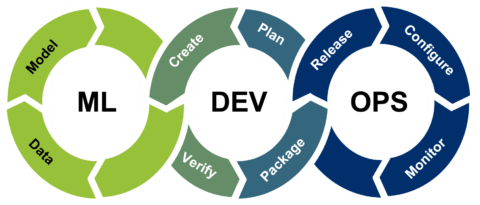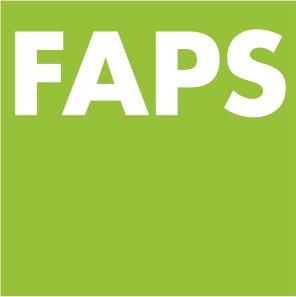Index
Studentische Hilfskraft zur Unterstützung beim Aufbau von Demonstratoren und Messeauftritten

Im Rahmen aktueller Forschungsarbeiten ist eine engagierte Studentische Hilfskraft gesucht, welche die Forschungsgruppe “Elektromaschinenproduktion” bei der Umsetzung von Demonstratoren sowie bei der Vorbereitung von Messeauftritten unterstützt. Die Tätigkeit bietet die Möglichkeit, wertvolle praktische Erfahrungen im Aufbau und in der Präsentation technischer Systeme zu sammeln und einen Einblick in die angewandte Forschungsarbeit zu gewinnen.
Ihre Aufgaben
- Unterstützung beim Aufbau, Test und der Weiterentwicklung technischer Anwendungsdemonstratoren
- Praktische Arbeiten in der Werkstatt, z. B. Montage, 3D-Druck, kleinere mechanische Anpassungen
- Mitarbeit bei der Vorbereitung von Messeauftritten
- Dokumentation und Erstellung von Präsentationsmaterialien (Poster, Flyer etc.)
Ihr Profil
- Studium im Bereich Maschinenbau / Mechatronik / Elektrotechnik / Energietechnik / Elektromobilität-ACES o. Ä.
- Erfahrung mit der CAD-Bauteilkonstruktion
- Handwerkliches Geschick und Sorgfalt
- Engagierte, selbstständige und zuverlässige Arbeitsweise
- Deutsch-Sprachkenntnisse (min. B2)
Beginn: nach Vereinbarung ab sofort möglich
Umfang: 8 Stunden pro Woche, flexible Arbeitszeiten
Ort: Auf AEG, Fürther Str. 246b, 90429 Nürnberg
Bitte senden Sie Ihre kurze Bewerbung mit Lebenslauf an: simon.stauber@faps.fau.de
Student Assistant: Third Party Integration for MLOps Platform / Mobile App Development (8h/week)

Background:
In the fast-evolving landscape of software development, tools that enhance productivity and streamline workflows are essential. Within the Machine Learning lifecycle, 3rd party systems and tools can significantly improve the developer experience when deeply integrated into the existing MLOps platform. This position focuses on developing and improving such integrations, particularly a Visual Studio Code extension (already in an early stage) and a new cross-platform mobile app (to be built with Flutter). Both projects aim to extend the platform’s usability, improve UX, and provide seamless interaction between developers, operators, and the MLOps ecosystem.
Objective:
The goal is to:
- Advance the development of a Visual Studio Code extension that integrates directly with an MLOps platform to support developers in production environments.
- Design and build a cross-platform mobile app using Flutter to make essential MLOps features accessible on the go.
Both tools should seamlessly integrate with existing workflows and improve overall efficiency, usability, and accessibility of the platform.
Tasks (VS Code Extension):
- Familiarize yourself with the architecture and extension API of VS Code (e.g., Webview API, Tree View API).
- Conceptualize and design extension features aligned with best practices in UI/UX.
- Implement functionality using JavaScript/TypeScript and relevant frameworks.
- Document the development process and create user guides.
Tasks (Mobile App):
- Familiarize yourself with Flutter, Dart, and Android Studio.
- Conceptualize and design the app with a focus on UI/UX best practices.
- Develop the app using Flutter, Dart, and relevant libraries/frameworks.
- Document the development process and create user guides.
Requirements:
- Strong knowledge of TypeScript; experience with VS Code extension development desirable.
- Strong knowledge of communication patterns and protocols for client-side usage (REST, HTTP, WebSockets, SSE).
- Practical experience with Flutter, Dart; experience with mobile app development desirable.
- Strong problem-solving skills and attention to detail.
- High motivation, curiosity, and a structured way of working.
- Good command of German or English, both written and spoken.
- High work ethic and ability to deliver features incrementally on a weekly basis.
Interview Process:
After submitting your application, your CV is being reviewed. If your application passes this stage, you will be invited to a 30 minute interview during which you will be asked some basic technical questions (and optionally you have to present a project you have worked on in the past and is somehow related to this offering). The interview will be conducted via MS Teams.
Applications including a resume and current transcript of records should be sent via email to benedikt.scheffler@faps.fau.de and tim.raffin@faps.fau.de.
Contact:
Benedikt Scheffler, M.Sc.
Tim Raffin, M.Sc.
Student Assistant: Software Testing for MLOps Platform

Background:
With the growing complexity of software engineering and data management in modern production environments, there is a pressing need for reliable and efficient software solutions. An MLOps platform has been developed to streamline the deployment and management of machine learning models in production. Ensuring the stability and robustness of this platform is crucial for its success.
Objective:
The primary goal is to develop and implement unit and integration tests for the MLOps platform, ensuring that all components work as intended and meet the required standards. This will help maintain the platform’s reliability, facilitate continuous integration, and support the seamless deployment of machine learning models. Furthermore, the tests will be integrated into a CI pipeline.
Tasks:
- Gain a deep understanding of the MLOps platform’s architecture and key functionalities.
- Study the existing codebase (Python) and identify areas requiring unit and integration tests.
- Design and implement unit tests using industry-standard tools and frameworks.
- Evaluate the effectiveness of the tests and make necessary improvements.
- Document the testing procedures and results.
Requirements:
- Interest in software testing and quality assurance.
- Prior practical experience with Python and unit testing frameworks (e.g., pytest).
- Strong analytical and problem-solving skills.
- Motivation, curiosity, and a structured approach to work.
- Good command of the German or English language, both written and spoken.
Applications with a resume and current transcript of records should be sent via email to tim.raffin@faps.fau.de and benedikt.scheffler@faps.fau.de.
Contact:
Tim Raffin, M.Sc.
Studentische Hilfskraft im Bereich der Prozessentwicklung für das Recycling von Seltenerdmagneten

Die für Magnete relevanten Seltenerdmetalle Neodym, Dysprosium und Terbium werden von der EU als kritische Rohstoffe der höchsten Risikokategorie betrachtet. Einerseits sind diese Rohstoffe von zentraler Bedeutung für viele Zukunftstechnologien wie die E-Mobilität und die regenerative Energieerzeugung. Daher spielen sie eine Schlüsselrolle für die Klimaziele der EU und die Nachfrage steigt kontinuierlich. Andererseits basiert die Versorgung ausschließlich auf Importen, wobei die VR China den globalen Markt dominiert. Aus dieser Abhängigkeit resultieren signifikante Nachteile für die europäische Industrie in Form von Lieferkettenrisiken, Preisvolatilität und kontinuierlich steigenden Preisen. Gleichzeitig ist die Primärförderung von Seltenen Erden und die Magnetherstellung mit signifikanten Umweltbelastungen verbunden.
Entsprechend besitzt das innereuropäische Recycling ein hohes geopolitisches, ökonomisches und ökologisches Potential. Derzeit fehlen allerdings industriell einsetzbare Technologien für die Rückgewinnung der Seltenerdmagnete, sodass die innereuropäische Recyclingquote unterhalb von einem Prozent liegt.
Im Rahmen aktueller Forschungsprojekte entwickelt der FAPS derzeit intelligente Demontage- und Sortierprozesse für die Rückgewinnung von Seltenerdmageten aus End-of-Life-Produkten (z. B. automobile Traktionsantriebe) und geschreddertem Elektroschrott. Für diese Forschung wird ab sofort eine studentische Hilfskraft zur Unterstützung in der Entwicklung innovativer Technologien gesucht. Es sind verschiedene Aufgabenschwerpunkte denkbar.
Mögliche Aufgaben umfassen:
- Mitarbeit in der Prozessentwicklung
- Recherche / analytische Betrachtungen
- Durchführung von Versuchsreihen
- Mitarbeit im Aufbau und der Inbetriebnahme von Versuchsaufbauten und Demonstratoranlagen
- Konstruktion
- Bauteilfertigung
- Montage
- Programmierung von Steuerungen und Robotern
Anforderungen:
- Studium im Bereich Maschinenbau / Mechatronik / Elektrotechnik / Energietechnik / Elektromobilität-ACES o. Ä.
- Erfahrung mit der CAD-Bauteilkonstruktion und handwerkliches Geschick
- Engagierte, selbstständige und zuverlässige Arbeitsweise
- Deutsch-Sprachkenntnisse (min. B2)
Weitere Bemerkungen:
- Forschung im Bereich innovativer und nachhaltiger Technologien, Eingliederung in den Forschungsalltag
- Flexible Arbeitszeiten am Standort Nürnberg, Stundenzahl nach Absprache
- Interesse an langfristiger Zusammenarbeit
- Gerne in Kombination mit einer Bachelor-, Projekt- oder Masterarbeit
- Beginn nach Vereinbarung ab sofort möglich
Bewerbung per Email an roman.hahn@faps.fau.de oder thorsten.ihne@faps.fau.de
HiWi im Bereich Elektromaschinenbau: Unterstützung bei der Überarbeitung des Skriptes der Lehrveranstaltung „E|MB Elektromaschinenbau“

Ziel der Elektromaschinenbau Vorlesung ist es, den Studierenden zu vermitteln, wie sich die Wertschöpfungskette nach dem Entwurf, der Konzeption und der Konstruktion eines Produkts gestaltet. Anhand der Vorlesungseinheiten werden den Studierenden Einblick in die verschiedenen Eigenschaften der elektrischen Maschinen gewährt. Darüber hinaus werden anhand des Stands der Technik die verschiedenen Prozesse entlang der Wertschöpfungskette, vom Blech über den Magneten und der Wicklung bis hin zur Isolation und der Prüfung des Produkts, vermittelt. Somit wird den Hörern der Vorlesung Elektromaschinenbau das Wissen gelehrt, welches notwendig ist, laufende Produktionsprozesse von Serienprodukten stetig hinsichtlich Ökonomie und Energie- und Ressourceneffizienz zu verbessern sowie die Prozesse für die Umsetzung von Neuentwicklungen in die Serien- und Produktionsreife zu überführen.
Im Rahmen einer vollständigen Überarbeitung und Ausweitung der Veranstaltung „E|MB Elektromaschinenbau“ soll ein vorlesungsbegleitendes ausformuliertes Skriptum entstehen.
Der Umfang der Tätigkeit umfasst folgende Schwerpunkte:
■Überarbeitung und Anpassen von Grafiken
■Vereinheitlichung des Layouts
■Zusammenführung von Inhalten
■Spannende Recherchetätigkeiten
Hinweise:
■Umfang 8-19 Stunden / Woche
■Beginn ab sofort möglich
